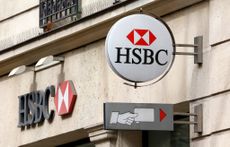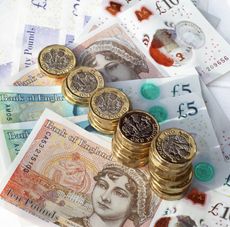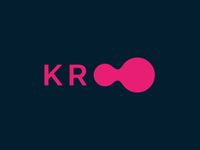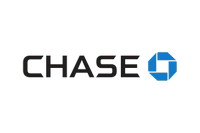Best bank accounts April 2024
Our guide to the best bank accounts available. With so many around it can get confusing to pick one.


There is a lot to think about when choosing a bank account, but choosing between the best bank accounts, to find the one that's right for you, will depend on your needs and how you manage your money.
To help choose the right one, think about the features that you use regularly. Do you want to make use of interest-free overdrafts, want to earn interest because you’re always in credit, or are you fed up with foreign transaction fees eating into your holiday spending money?
To help you pick the best bank account, we’ve broken down the different types of current accounts to help you pick the right one.
Here’s everything you need to know about what is available.
Best bank accounts
Why you can trust The Money Edit
The best bank accounts for overdrafts
If you regularly dip into the red on your current account, it is a good idea to choose a bank account that specialises in low overdraft rates.
But, after the free or low-rate offer expires, borrowing via an overdraft is an expensive way to borrow with some current accounts charging over 39% EAR when you use your overdraft.
The best bank accounts to earn interest
If you keep a healthy balance in your current account, the interest rates available on these current accounts are decent compared to some of the best savings accounts on the market.
Nationwide FlexDirect | 5% interest on up to £1,500
This current account offers the highest interest with new customers able to earn 5% on cash balances up to £1,500 for the first 12 months, but after that, the rate will drop to 0.25%
- Earn 5% AER interest fixed for a year (0.25% AER variable after) if you pay at least £1,000 per month into your account.
- An interest-free overdraft of up to £2,750 for the first year (subject to status). Arranged overdraft years two plus: 39.9% EAR variable
Kroo Current Account | Earn 3.3% AER on up to £85,000
Kroo Current Account holders can earn 3.3% AER / 3.28% gross (variable) on balances up to £85,000. Kroo is a new bank, but it is licensed by the Financial Conduct Authority (FCA) and all balances are covered by the Financial Services Compensation Scheme, so it protects up to £85,000 per customer.
A great perk with this current account is that there are no fees when you use your debit card abroad. You can get an arranged overdraft at 24.9% EAR/APR representative (variable) but note, this is only available to customers who have opened a Kroo current account and have received an invitation for an overdraft.
| Account | Interest (AER) | Max limit | How to open an account |
|---|---|---|---|
| Virgin Money M Plus account | 2.02% | £1,000 | Online. - If you have more to save, you can make use of the linked savings account, which pays 2.52% on balances up to £25,000. |
It is worth noting that the rates only apply to balances up to a certain limit and the deals may also only last for one year. If you have more to save, then it is worth considering an account with linked savings.
The best bank account for linked savings
There are several bank accounts available at the moment that come with a linked savings account with an attractive interest rate.
First Direct 1st current account | 7% regular saving account
Pays 7% if you pay into it from £25 to £300 per month. Fixed for 12 months.
- £250 interest-free overdraft (subject to status) for as long as you have the account. Go over that amount though and you’ll be charged (0% EAR variable on the first £250, 39.9% EAR variable thereafter, giving a representative rate of 30.5% APR variable on an assumed arranged overdraft of £1,200). Customers can opt to increase the interest-free overdraft to £500 for 12 months.
- Get access to a 7% regular saver account (fixed for 12 months). You must save between £25 and £300 each month. If you save less than £300 in any given month, you can carry over the difference to the following month. The maximum you can save in a year is £3,600 per year.
| Account | Interest (AER) | Limits | How to open |
|---|---|---|---|
| HSBC Advance account | 5% | £250 per month / £3,000 per year | Online |
| Natwest / RBS | 6.17% | £150 per month | Online |
| Starling bank | 3.25% | £2,000 minimum / £1million maximum | App |
| Chase | 3% | £250,000 | App |
The best bank account to use overseas
If you travel regularly, you may want a bank account that offers the best exchange rates and zero or low fees for foreign usage. Using the wrong card could mean you pay around 3% every time you use your card abroad. Here are the best bank accounts if you plan to use your bank card when travelling.
| Account | Card transaction fees | ATM fees | Other perks | How to open |
|---|---|---|---|---|
| Chase | None | None - but ATM could charge | 3% linked savings and 1% cashback | App |
| Starling Bank | None | None - but ATM could charge | None | App |
| Monzo | None | Some ATMS charge | None | App |
The best bank account for cashback
There are some current accounts that will pay you cashback on your spending and direct debits. Here is the best available right now:
Chase current account | 1% cashback on most purchases in the first year
You can get 1% cashback on most of your purchases in the UK and abroad for the first year. On top of this, you get 3% interest in the linked savings account and 5% interest on the money you save by rounding up your spending to the nearest £1.
Santander’s 123 Lite account | £15 per month back on bills
For £3 a month you get varying rates of cashback on different household bills. Cashback is capped at £5 a month in each tier so you’ll earn a maximum of £15 a month.
| Cashback Rate | Household bills |
|---|---|
| 1% | Council Tax; Mobile and home phone bills; Broadband; Paid-for TV packages; Santander mortgage payments |
| 2% | Gas and electricity bills; Santander home insurance premiums; Santander life insurance premiums |
| 3% | Water bills |
To get the cashback you have to pay in £500 a month, have at least two direct debits set up and use digital banking at least once every three months.
Nationwide | 5% cashback on supermarket shopping
All Nationwide current accounts can earn 5% cashback on the money you spend at supermarkets, capped at £10 in a calendar month, until 30th April 2023.
The best bank account switching bonus
Take a look at our article on the latest switching offers to find the best deals available now.
It’s a great time to get a new bank account. Banks are eager to attract new current account customers so there are plenty of tempting cashback deals available. But don’t just choose your current account based on the free cash. You want a bank account that works well for you, otherwise, you’ll be switching again in a few months.
How to pick the best bank account
Before opening a new bank account, ask yourself what you want from it and choose one that ticks most of the boxes. Here are some things to consider:
- Do you need an overdraft facility?
- How often do you need to go into a branch?
- Would you like a linked savings account?
- Do you want to pay for extras such as travel insurance or breakdown cover?
- Would you like to earn cashback on your spending?
- Do you want to get paid to switch?
Look After My Bills Newsletter
Get the best money-saving tips, tricks and deals sent straight to your inbox every week. Make sense of your money in partnership with The Money Edit.

Ruth is a personal finance journalist with 17 years’ experience writing about everything from pensions to pet insurance. Ruth started her career as a staff writer for MoneyWeek and she continues to edit their personal finance section. Ruth also writes for numerous national publications including The Sunday Times, The Times, The Mail on Sunday and Good Housekeeping. Ruth is passionate about ethical investing and encouraging people to take control of their finances and not be put off by jargon.
- Vaishali VaruStaff Writer
-
 Three energy firms pay £8m in switching compensation - has your provider paid out?
Three energy firms pay £8m in switching compensation - has your provider paid out?More than 100,000 customers have received compensation after changing providers, but is now a good time to switch energy suppliers?
By Tom Higgins Published
-
 Save £300 on your supermarket shop with cashback accounts
Save £300 on your supermarket shop with cashback accountsBanks, credit card companies and cashback sites are all offering cashback on your supermarket shop, but can you use them all to max out your savings?
By Vaishali Varu Published
-
 Save £300 on your supermarket shop with cashback accounts
Save £300 on your supermarket shop with cashback accountsBanks, credit card companies and cashback sites are all offering cashback on your supermarket shop, but can you use them all to max out your savings?
By Vaishali Varu Published
-
 More than 150,000 grandparents missing out on £1,500 state pension uplift: how to claim
More than 150,000 grandparents missing out on £1,500 state pension uplift: how to claimGrandparents who provide childcare by looking after their grandchildren could be missing out on valuable state pension money worth thousands. We look at how much extra you could get and if you’re eligible
By Stephanie Baxter Published
-
 Can you reclaim bank charges?
Can you reclaim bank charges?If you’ve incurred bank charges over the years, these can add up to hundreds of pounds – but can you get your money back? We look at whether you can make a claim and how to do it
By Stephanie Baxter Published
-
 HSBC extends deadline for customers to secure bigger interest-free overdraft
HSBC extends deadline for customers to secure bigger interest-free overdraftHSBC customers now have until 10 May to increase their interest-free overdraft limit from £25 to £500. First Direct, Lloyds and Nationwide also offer similar support. We explain everything you need to know
By Katie Binns Last updated
-
 New banking hub locations revealed - is there one near you?
New banking hub locations revealed - is there one near you?The rise of banking hubs is in response to a stream of local branch closes. With more planned to launch soon, we look at what services they offer and where you can find one
By Stephanie Baxter Published
-
 April 2023 premium bond winners revealed - are you a millionaire?
April 2023 premium bond winners revealed - are you a millionaire?Two premium bond holders have won £1 million each this month and there are many other prizes for another 5,018,742 winners in April. We look at how to find out if you’ve won
By Stephanie Baxter Published
-
 Get more for your money with a stocks and shares ISA
Get more for your money with a stocks and shares ISAA stocks and shares ISA could grow your money faster than a cash ISA. But what is it exactly and who is it suitable for?
By Ruth Emery Published
-
 Help to Save scheme extended – act now for £1,200 bonus
Help to Save scheme extended – act now for £1,200 bonusThe government has extended the Help to Save scheme - we explain how it works and who is eligible
By Kalpana Fitzpatrick Last updated




